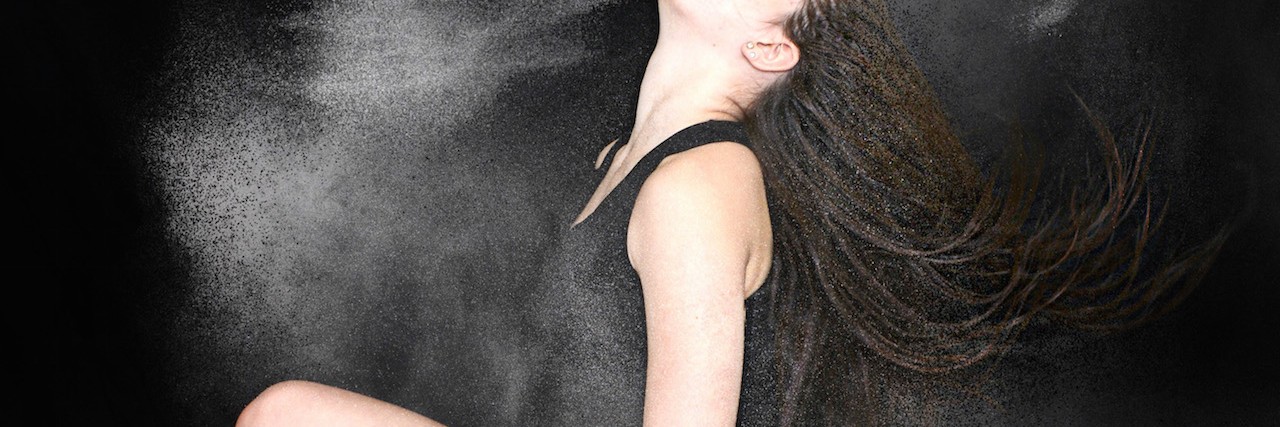What I've Learned as a 15-Year-Old With a Progressive Rare Disease

I have always heard your teenage years are the hardest. If I had only known how horrific they would soon become, I would have enjoyed the little moments we all take for granted just a little more. Like the family gatherings, favorite movies, or just times I could run, jump and play like a normal child. With any disease, the shock after diagnosis can be mind boggling. When it’s a rare disease people have never heard of, it can be difficult to explain and others often accuse you of exaggeration. There is no need for exaggerating; the symptoms of my disease are horrific enough as it is.
My rare disease affects less than 3,000 people in the U.S. It abruptly occurs before age 15 and I was right on schedule! Before I had a referral to a specialist, there were many trips to the ER with no answers, test after test, a misdiagnosis and ending up in critical condition. After my first diagnosis by a local doctor, and then an endocrinologist, Nationwide Children’s Hospital in Columbus Ohio gave me my third and fourth diagnoses. It was official — I had a definite, unmistakable diagnosis, a rare neuromuscular disease called hypokalemic periodic paralysis. One person in every 100,000 people will have my disease. People often make the comment that “I look fine, so I must not be sick.” I guess my only question is, “What does sick really look like?”
My condition is caused by a defect in the CNA4A gene. It is congenital, which means it is present from birth. I have regular bouts of tachycardia when my potassium drops, with my heart rate nearing or over 200 beats per minute. My legs will shake from weakness too. My potassium has been as low as 2.1 during an attack and it causes nausea and vomiting. I have been placed in critical care while in the hospital to get my attack under control. The ability to use my muscles becomes hindered during and after an attack. No amount of rest seems to cure the weakness this disease leaves behind. Heart arrhythmia is possible from the loss of potassium, as well as the need for intubation should the diaphragm become paralyzed during an attack. Any muscle in my body can become paralyzed due to the lack of potassium in the blood. These attacks come out of nowhere with usually no warning and the symptoms linger like a black shadow in my everyday life, waiting to make its attack on my body once again. It is possible to wake up in the morning completely unable to move or even open your eyes, but you can hear everything around you. You’re essentially trapped.
Although not much can be done to prevent further attacks, including taking potassium supplements daily (but I still take them) and there is no cure for my disease at this time, it’s nice to have a diagnosis. It’s helpful to have a plan and know that I will not travel this road alone. Karate is a constant in my life — a therapy not only for my aching, weak muscles, but also my mind. Even when I can’t do what I once could, or train as hard as I should be, I turn to it to lead me through the darkness. It’s the one thing I could not give up.
Recently I woke up unable to move my arm and I’ve days when I could no longer wiggle my toes. My right side is becoming weaker and slower and my right arm shakes when I try and use it. You see, the more times you have an attack, the muscles can be left with eventual permanent, irreversible weakness. My legs swell and I’m completely and totally exhausted. I have had to limit my activity and learn to pace myself.
I am still attending school and plan to keep going and trying to be as normal as I can until I can no longer tolerate it. This isn’t how I imagined my first days or months of being 15 years old. I have hope for a bright future and I wear my disease proudly! My parents and sisters have been my biggest supporters. I have a great group of friends and classmates who understand and are right there with me as my family and I travel this road I call “Jessi’s Journey.”
To other teens like me struggling with a rare disease diagnosis, here’s my advice:
1) Please, never hide who you are. Always embrace and be proud you’re different, because that’s what makes you special. Never be afraid to reach out to other people about your disease because someone in the world knows just what you’re going through and strength is found in numbers. Alone we are rare, but together we are strong.
2) Use social media. It is a great tool to use to meet others with your disease. No one will understand what you’re going through better than someone going through the same thing. These “angels in disguise” can become your biggest supporters and hopefully lifelong friends. Life continues after your diagnosis. You will have good days and bad days and sometimes you will struggle, but never forget how rare you are. And most importantly, love yourself.
3) Record even the slightest changes in your health. This includes any new symptoms you encounter. It will make it easier to find a pattern which could lead to a better treatment plan. This isn’t the end of the world, it’s a bump in the road. Having a record of every “pothole” will shorten your road to recovery.
4) Acceptance will come. Even if it doesn’t seem like it, it will come. Just because you are sick doesn’t mean you can’t try to make the best of it. Once you have accepted your diagnosis, you can start to build your life around it and pace yourself. Sometimes the slightest adjustment to your diet or everyday living routine can lead to another symptom-free day.
5) Most importantly educate yourself and others. This includes your friends, your family, teachers and medical staff. It’s important for everyone close to you to be aware of your disease in case of emergencies. Raising awareness can impact others like you as well.
6) You are your best advocate. If you’re not happy with your treatment plan, your doctor, or you feel like no one is listening to you, you have to advocate for yourself. Ask questions, get another opinion or schedule an appointment with a new specialist.
Fight for the life you have been given and most of all, never give up hope.
The Mighty is asking the following: Create a list-style story of your choice in regards to disability, disease or mental illness. Check out our Submit a Story page for more about our submission guidelines.

